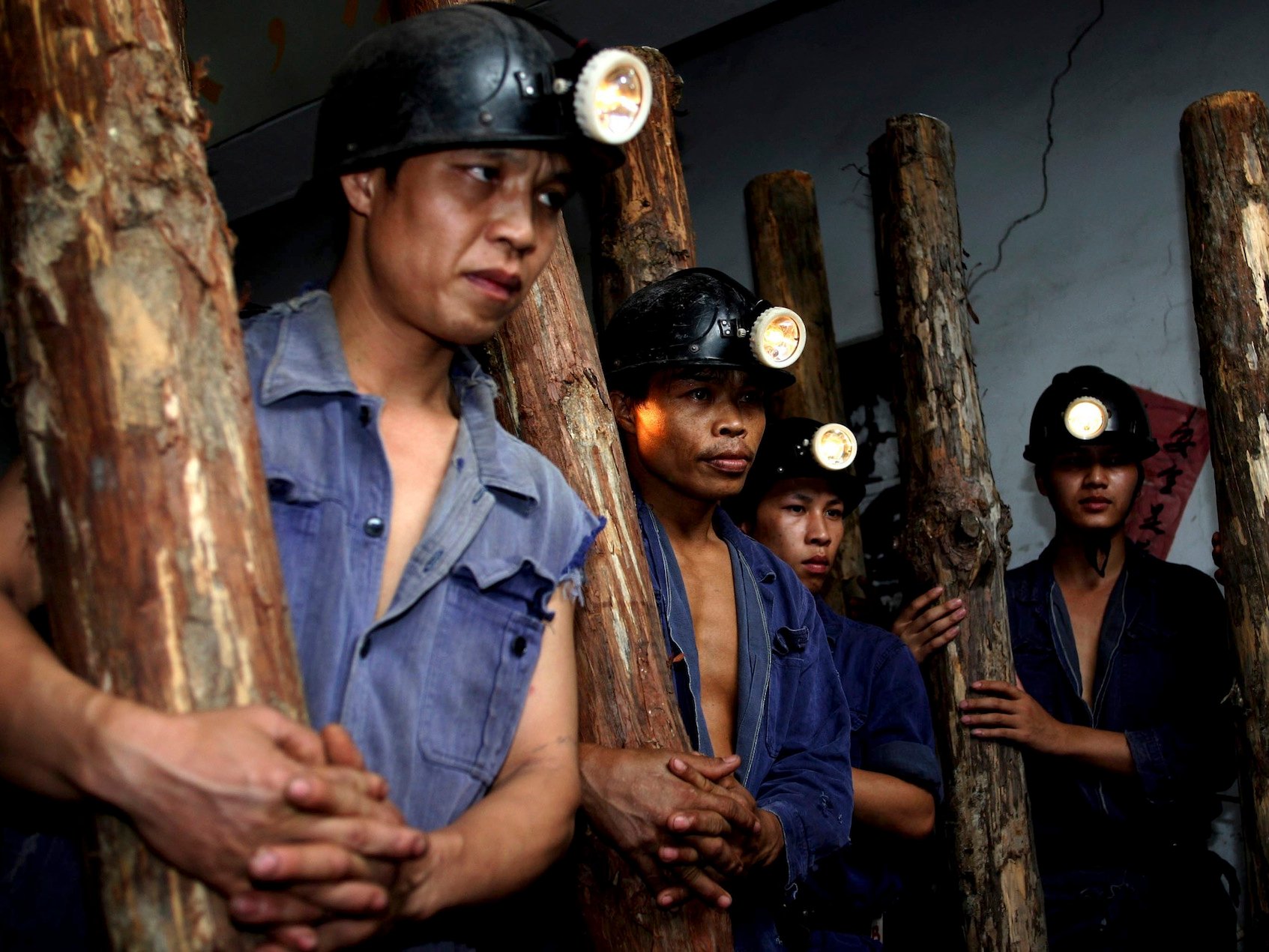 ReutersMiners prepare to carry out rescue work at the flooded Nadu mine in Tiandong county, Guangxi Zhuang autonomous region July 23, 2008.
ReutersMiners prepare to carry out rescue work at the flooded Nadu mine in Tiandong county, Guangxi Zhuang autonomous region July 23, 2008.In George W. Bush’s autobiography, ‘Decision Points’ published in 2010, he describes an encounter with then-Chinese premier Hu Jintao while they held office.
Bush asked Hu what he often asked world leaders: “What keeps you up at night?”
He confessed to Hu that his nightmare was another terrorist attack on US soil.
Hu, without missing a beat, responded that what kept him awake was creating 25 million jobs a year to feed the beast that is China’s modernizing economy.
So it should be no surprise that, as China’s economy slows, strained under its attempt to transition from an economy based on investment to one based on domestic consumption, job growth remains paramount.
That is why the findings in this quarter’s China Beige Book, an independent survey of the Chinese economy, are so troubling. Job growth in China fell to a four-year low in the first quarter.
From the report [emphasis ours]:
The principal reason China has been able to defy market expectations for more aggressive stimulus was stability in the labor market, despite overall economic deceleration. Time may have run out. Led by rising layoffs at private firms, Q1 job growth took a notable hit, sliding to a new four-year low. Expectations of future hiring also dove. The macro picture was not uniformly gloomy—profits and wage growth improved a bit on-quarter, and pricing steadied. Beijing did not seem overly concerned when many indicators were unpleasant but job growth was steady. It may be more worried if the opposite combination persists.
According to the report, only 23% of China’s employers are expanding their workforce. In contrast, 15% of the companies will lay workers off.
It seemed like the Chinese economy started kicking back into gear in the middle of the of the first quarter — property sales were up, credit growth expanded again massively, and commodities like steel and aluminum enjoyed a boost to demand.
But if these labor dynamics are correct, this is a government-led rebound happening against an increasingly weakening backdrop. Reuters has reported that millions of Chinese people will be laid off in industries like steel and coal where there’s tons of overcapacity and debt. The firings have already started. It may be why Wall Street analysts are so wary of this rally.
Morgan Stanley, for one, thinks it will probably only last until August.
“We maintain our base case that the mini-cycle recovery will continue for another three to four months and growth is likely to moderate from Aug-Sep,” analysts wrote in a note published on Wednesday.
“We are concerned about the deteriorating quality of the cyclical improvement, as it has been mainly a government-led recovery in investment, exacerbating the structural problems of high debt, excess capacity and persistent disinflationary pressures.”
It’s hard to create 25 million jobs a year in good times, let alone in such an environment. We wouldn’t sleep either.
SEE ALSO:This is the most useless number in global finance, and everyone needs to stop being obsessed with it
NOW WATCH: The US is showing its strength against Russia by sending its most advanced warplanes to the Black Sea















